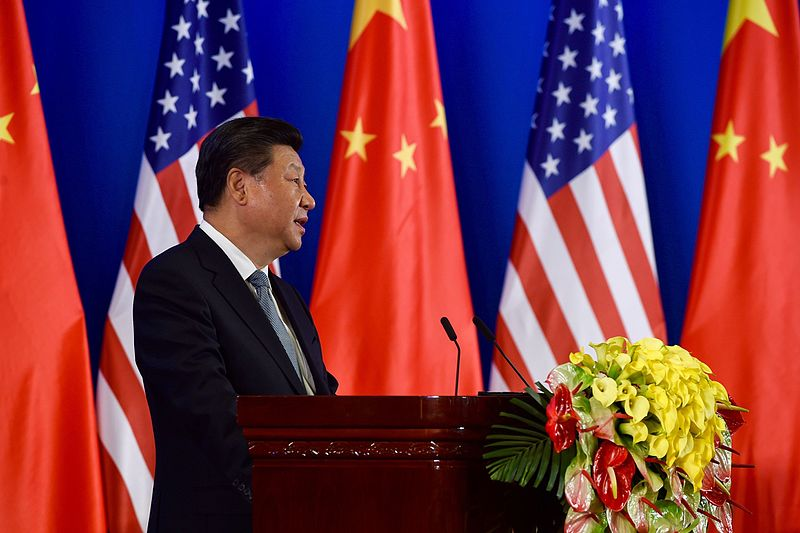NCC:With infrastructure being necessary for mining operations, particularly in Chukotka, has a reduction in foreign investment in Russia affected the nation’s infrastructure and in turn, mining operations?

Kevan Ford: Outlying areas in Russia need improved air-strip runways, better aircraft maintenance with new fleets, roads and more comfortable accommodation. These areas are remote. When you go to Siberia, there are vast areas of nothing with little infrastructure. On the other hand Moscow is a modern western-like metropolis. In fact has the best railway system in the world.
Lack of infrastructure will have a significant impact. However Russia’s expansionist approach, with Putin breaking of international laws, the world has imposed sanctions and restrictions on Russian business, trading operations and its ability to raise outside funds. Mining is a capital business. You need significant amounts of money to develop a mine, and sustained capital to run it, but if that funding doesn’t come out of the mining company’s own cash flow, then you need to find your capital elsewhere.
NCC: In the past, do you think Putin has been favorable towards foreign investment in critical elements of the economy, such as the mining sector, and do you think his attitude will change as a result of the current political climate?
KF: I think mining would be one of the casualties of Putin policies and approach on the global stage. The funding for mining will be difficult to raise and would impact the mining industry significantly. For example; Kinross is scrutinizing the greater risks of its Kupol operation has on the company. Other operations, such as joint ventures with the Russians, are few in the mining sector. These will be strongly impacted, as they will have difficulty raising capital outside of Moscow. They will be negatively affected by the inability to tap into global capital markets. I think Putin’s approaches will soften, if long-term investments decline.
NCC: With the tit-for-tat sanctioning over Ukraine, is there a fear of possible expropriation by the Russian government in the mining industry?
KF: Back and forth with sanctions has come about by Russia struggling with its identity. Putin wants to make Russia great, to return to its glory as the “motherland”. The Putin government wants Russia to be a highly respected, functioning state with power, finance, being a good place to live in, and economically strong. Paradoxically, [Russia’s] current aggressiveness towards Ukraine and other regions have been counter-productive to achieving these goals. The Western world has said the advances into Ukraine are unacceptable, and Putin has responded with an attitude of “I’ll do what I want, I’m Putin”. Sanctions, both ways: Russia to Western Europe and the West and visa versa, have gone back and forth and have isolated Russia, and in turn, Putin, thus having the opposite effect on making Russia respectable, and economically prosperous.
The other issue is resistance by the Russian oligarchs. A number have resisted Putin and his approaches regarding Ukraine. They were against the way in which Putin has been pushing for Russian dominance. Putin’s own adventures have hurt the Russian economic powerhouse and motherland. Putin is his own man, with his ‘adventures’ a man of contrasts. You see him riding a tank, without a shirt on, yet you see him as a conservative politician, a man with suit and tie and acting normally. He is a sort of Jekyll and Hyde, which leaves the world wondering what he will do next.
In this overall context, I would say that expropriation of mining assets, partially owned by external investors, could occur. But Russia knows that such acts would really damage the mining sector in Russia. So this may not actually happen.
NCC: On a side note, what is your opinion on Ukraine?
KF: Years ago I’ve talked with Ukrainians in Dniperpetrovsk on a visit to a large smelting works in southern Ukraine. They say after glasnost and perestroika, Ukraine was battling to find an affordable sustainable lifestyle because, before, as part of the Soviet Union, the communist system kept them in a state of social equilibrium. They were still poor but stable. Now Ukraine faces a conundrum, as Ukraine depends on Russia for gas in the winter. Also it largely remains relatively poor and ethnically divided. Kiev is a modern western city but to its east, the people are more Russian. Ukraine has been caught in the middle of the new Russia, Putin, and world financial markets estrangement. With Russia entering into Crimea, this has really put Ukraine in a difficult spot.
NCC: How do you mitigate the negative impacts of unfavorable political conditions, particularly the recent implementation of sanctions against Russia?
KF: To rephrase the question: How do you mitigate against potential expropriation, potential loss of mining assets, and potential loss of capital coming out to shareholders?
KF: With difficulty. It’s like the South America equivalent. For example, remember Venezuela’s Chavez on a large gold mining asset. “It’s ours now, go away.” This attitude he had put great risk on foreign mining companies and led to withdrawal of capital investment. It is the same issue here. Investors flee, as does the mining company and its employment opportunities.
[Nevertheless] here are three things to mitigate the impact.
First, a lot of effort needs to be put into relationships, negotiations with the Russian government in Moscow and the Russian provincial leadership. You need to get on the favourable side of the government. Kinross has a Moscow office with a large effort spent on maintaining relationships.
Secondly, one can seek insurance of some sort, some hedging strategy, and some protection strategy on metal production from the mines and supply costs to the mine.
Thirdly, mining companies can do a range of philanthropic stuff. You make the mine a model mine where people are happy to work there. Invest in local community support, investment into local schools, medical facilities etc. You need to be helping Russians and then their on-the-ground voice will be heard at government levels. This, would make the government think twice of upsetting the economic prosperity of that region. However, with Putin’s approach to Ukraine, leading to geo-political instability and uncertainty, the mine owners and investors are exposed in the mining sector in Russia. This would be and is the similar in other unstable countries in the world.
NCC: What impact will the sanctions on Russia have on the global mining sector?
KF: Overall, the global mining sector would see some impact if the supply of gold, and particularly nickel were significantly reduced, due to sanctions. Russian production of gold is 4th in the world after China, Australia and the USA, about 220 metric tonnes, out of a global supply of about 3000 metric tonnes. This is less than 10%. The gold price is linked to supply, but there are other factors affecting the price. But with nickel and palladium that come out of Norilsk, a major producer, if reduced by sanctions would significantly affect the nickel price. If that mine operation were to shut down, the nickel price would soar since it’s a major operation, a global player. If sanctions damage Russian nickel output, this will definitely impact prices because Russia is a major producer. The global economy would have to pay more for nickel related commodities, such as stainless steel.
The other large impact is energy. Europe buys natural gas from Russia. Even with the North Sea oil and other sources, Russia is a large supplier into Europe. If sanctions extend to energy, there will be some very cold Europeans in the winter. If Russia gets more expansionist, that would affect supply and the prices, but the largest impact would be in Europe, the Baltics and Ukraine.
NCC: Thank you very much for your time. Finally, do you have any final thoughts on Russia?
KF: Given what I said about infrastructure, logistics, etc. generally in northern Russia, working in Russia for Western consultants and companies is difficult, especially now, likely to not be favored by Russian companies, given the cooling relationships with the West. In my experience, no Russian trip goes well when going to remote regions. Flight delays, queues, and you do not know why they are taking so long with your passport. Staying in a Russian or Ukrainian hotel, you leave your passport at the front desk. This is an over-control thing, a legacy of communism. They’re trying to be this capitalist, super Mother Russia that has moved on from communism. But, it’s neo-communism. It’s a new brand of control.
However, the country has massive opportunity and resources, with hard working people. You have to understand [Russia] is a big continent, a massive country. It has all the resources; metal and ore bodies that are tremendous. Unexplored and unknown. But the current hurdle is that currently Putin and Russia has created barriers for western capital to properly exploit ore deposits and return growth. There is no appetite for mining companies to pump millions into Russia at this point. Alongside the geopolitical problems, currently there is a major global economic downturn in the mining industry. Significant investment dollars have fled from the industry.
For the Russian gold sector to boom, a higher gold price, towards $1500/oz, is needed with deposits and projects that show good returns. Given the remoteness of Russian gold mines, higher gold grades generally are needed. For example, Kupol was a very profitable mine, built years ago, and built on time and within budget. But it had high gold grades, lower now, but that has allowed the operation to be very profitable. Generally in Russia, remoteness, lack of infrastructure, supply chain issues will effect capital and operating costs and decrease profit margins and return to shareholders. Therefore, higher gold grades, and readily available investment capital is required. The present Russia – West relationship adds to the significant headwinds facing developing new gold mines in Russia with Western input.
Finally, remember the past Russian invasion of Georgia.
I believe [the Crimean annexation] is much more significant than when Russia invaded Georgia. We’ve become a much more media centric, global village. You can receive a text from a Ukrainian woman seeing Russians drive past her house. The world has changed since 2008. Democratic rights and standards in the West have risen. The mining industry would love to have a favorable destination in Russia, but with the present Russian political climate and the geopolitical scene, no one will send large amounts of money into Russia right now. Only until the geopolitical climate changes will money return.




